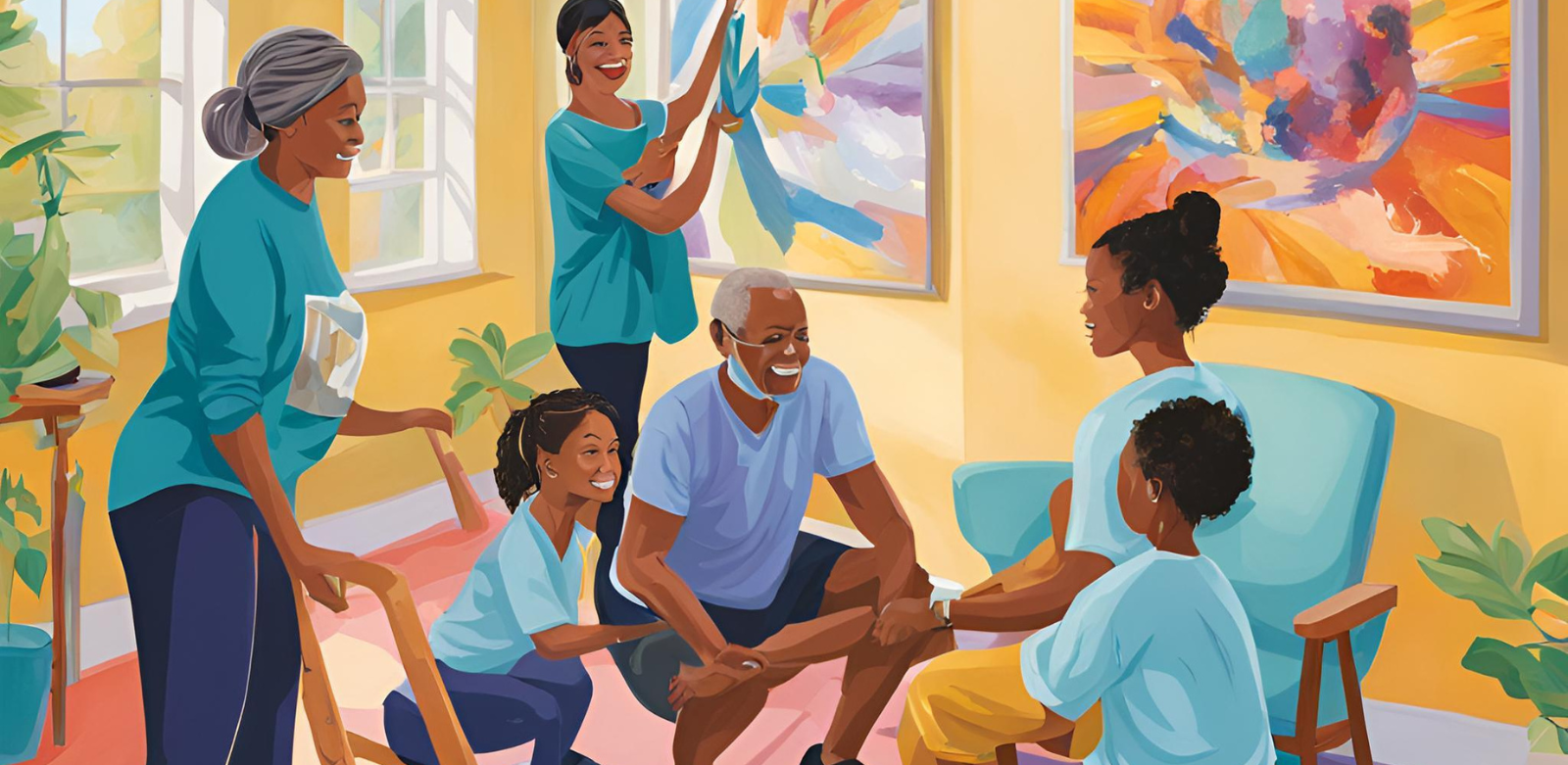Resilience Rehabilitation Centre


Management Of Stroke Patient
The management of stroke patients focuses on immediate emergency care, followed by rehabilitation and long-term care to promote recovery and prevent further complications. In the acute phase, the priority is to restore blood flow to the brain (for ischemic strokes) or manage bleeding (for hemorrhagic strokes) through medications or surgical procedures. Once stabilized, rehabilitation begins, involving physical therapy, occupational therapy, and speech therapy to help the patient regain motor skills, communication abilities, and independence. Medications such as blood thinners or antihypertensive drugs may be prescribed to prevent future strokes. Ongoing care involves monitoring for complications like infections, managing risk factors (such as hypertension or diabetes), and providing emotional and psychological support to both patients and families. A multidisciplinary approach ensures comprehensive care throughout recovery.
What is Stroke and How is It Treated?
A stroke occurs when there is a disruption in the blood supply to part of the brain, leading to neurological damage. Treatment for stroke includes medication, physical therapy, occupational therapy, and Applied Behavior Analysis (ABA) to help individuals regain motor skills and cognitive functions.
.
How ABA Therapy Aids in Stroke Rehabilitation
ABA therapy plays a significant role in stroke rehabilitation by helping patients rebuild cognitive and physical skills lost due to the stroke. Through behavior modification and skill development, ABA supports stroke recovery, focusing on motor coordination and social behaviors.
.
What is ABA Therapy for Stroke Rehabilitation?
ABA therapy for stroke rehabilitation is a structured therapy that helps individuals regain skills and behaviors through positive reinforcement. ABA can focus on improving communication, motor skills, and social interaction after a stroke.
How Can ABA Therapy Help with Cognitive and Physical Recovery After a Stroke ?
ABA therapy helps stroke survivors by encouraging the development of cognitive skills, memory, motor skills, and behavioral strategies. By reinforcing positive behaviors, ABA therapy aids in the rehabilitation of patients who have experienced a stroke.
Rehabilitation Strategies for Stroke Recovery Using ABA
Cognitive Skills Rehabilitation: ABA techniques help individuals strengthen cognitive abilities like memory and attention.
Physical and Motor Skill Development: ABA therapy targets improving physical coordination and motor function after a stroke.
Social Skills and Behavioral Adjustment: ABA supports recovery by addressing the social and emotional challenges that arise after a stroke.
Can ABA Therapy Improve Long-Term Stroke Recovery?
Yes, ABA therapy can support long-term recovery by helping individuals develop strategies to cope with lasting effects of stroke and reinforce skills that are essential for daily living.
How Involved Should Families Be in Stroke Rehabilitation?
Family involvement is crucial in the management of stroke patients, as it plays a key role in the rehabilitation process. Through ABA therapy, families can support their loved ones by reinforcing skills and behaviors at home, ensuring continuity of care. This active participation helps stroke patients recover more effectively by maintaining a structured and supportive environment outside of formal therapy sessions. By working together with healthcare providers, families can help patients regain independence, improve communication, and enhance overall quality of life during recovery.
FAQs About Stroke Rehabilitation
Yes, ABA therapy can help individuals regain cognitive skills and manage memory challenges that result from a stroke.
ABA therapy helps stroke patients regain independence by addressing motor skills, cognitive abilities, and social behaviors, significantly improving overall recovery.
Conclusion
Stroke rehabilitation is a long-term process that benefits from the integration of therapies like ABA. With consistent support, individuals who have experienced a stroke can recover motor, cognitive, and social skills to regain independence.
Management Of Stroke Patient
At Resilience Rehabilitation Centre, we are passionate about providing comprehensive therapeutic services that enhance the lives of individuals facing challenges in their development.
Contact Information
- Phone: 8240640774
- mail: resilienceotcenter@gmail.com
- Address: F- 381 Q Block Sector 40 Gurugram Haryana 122001
